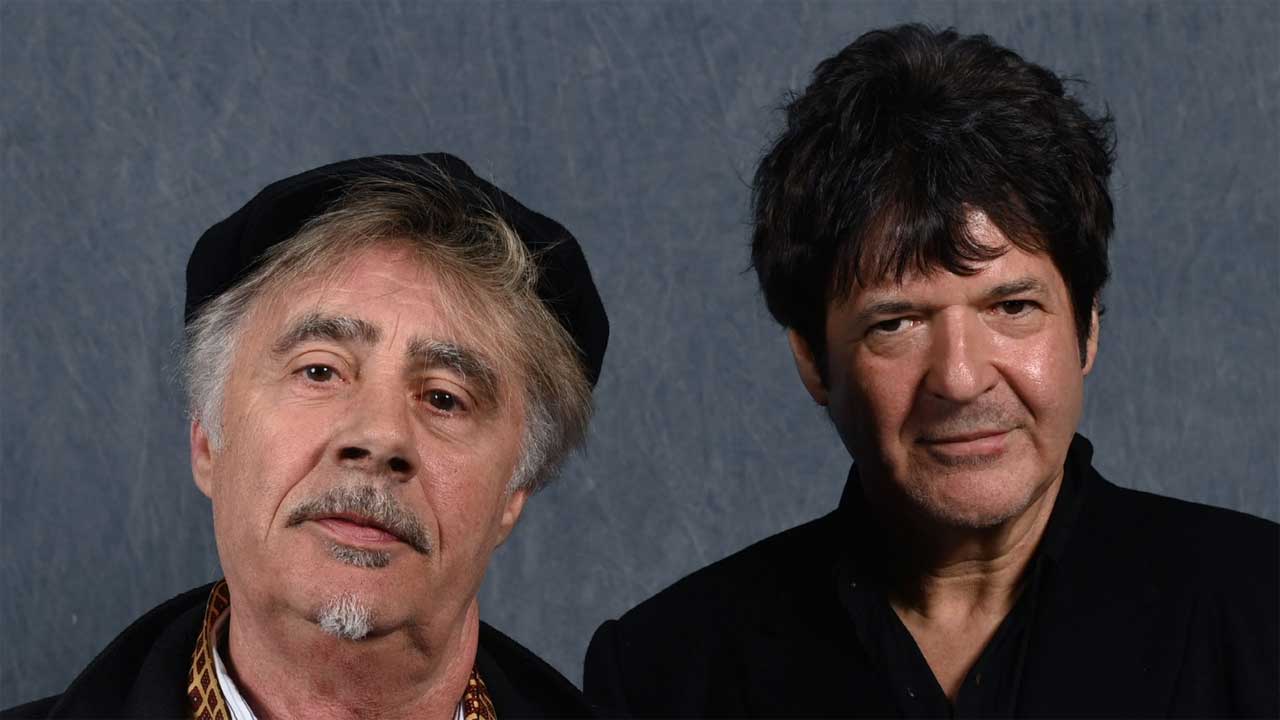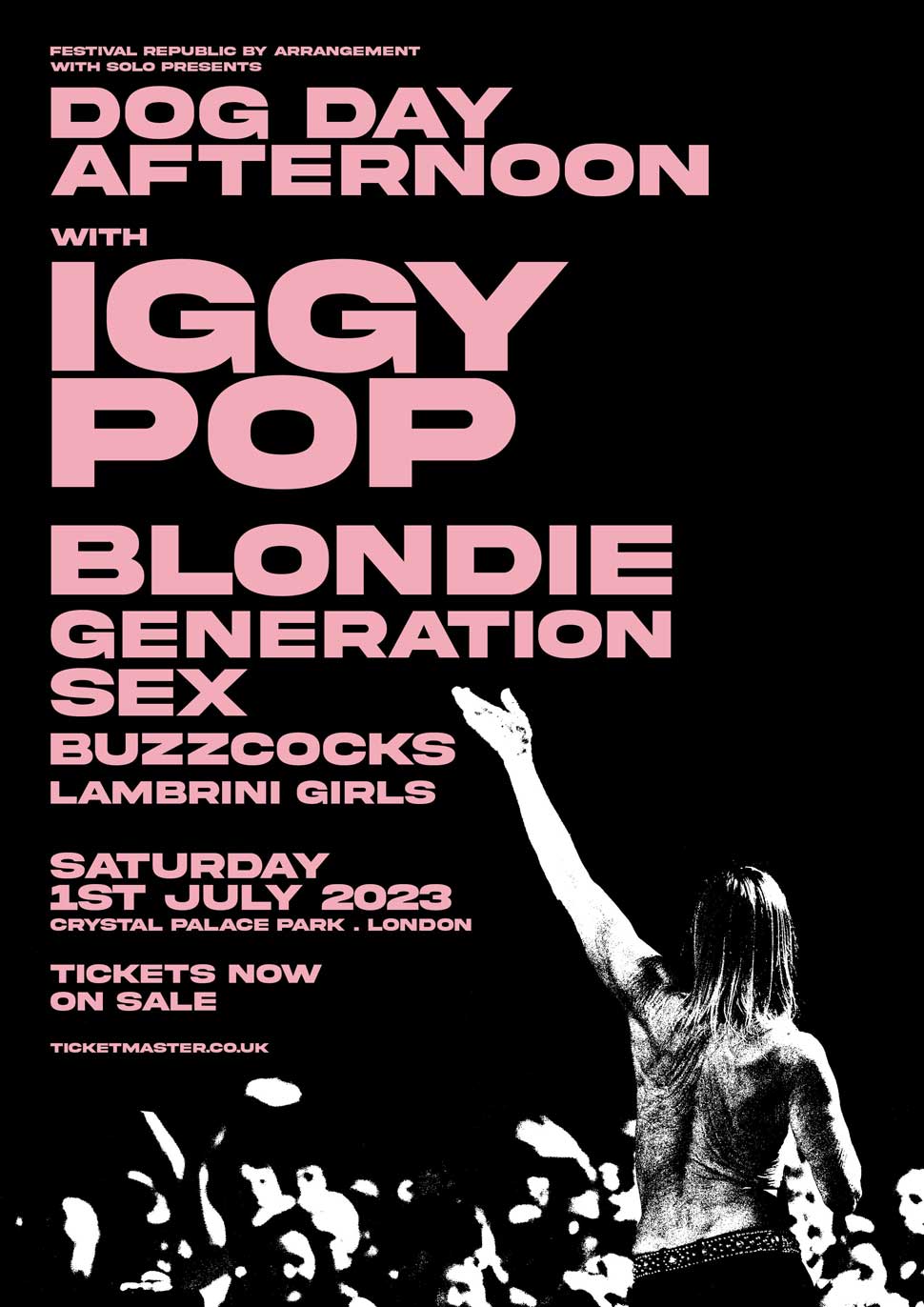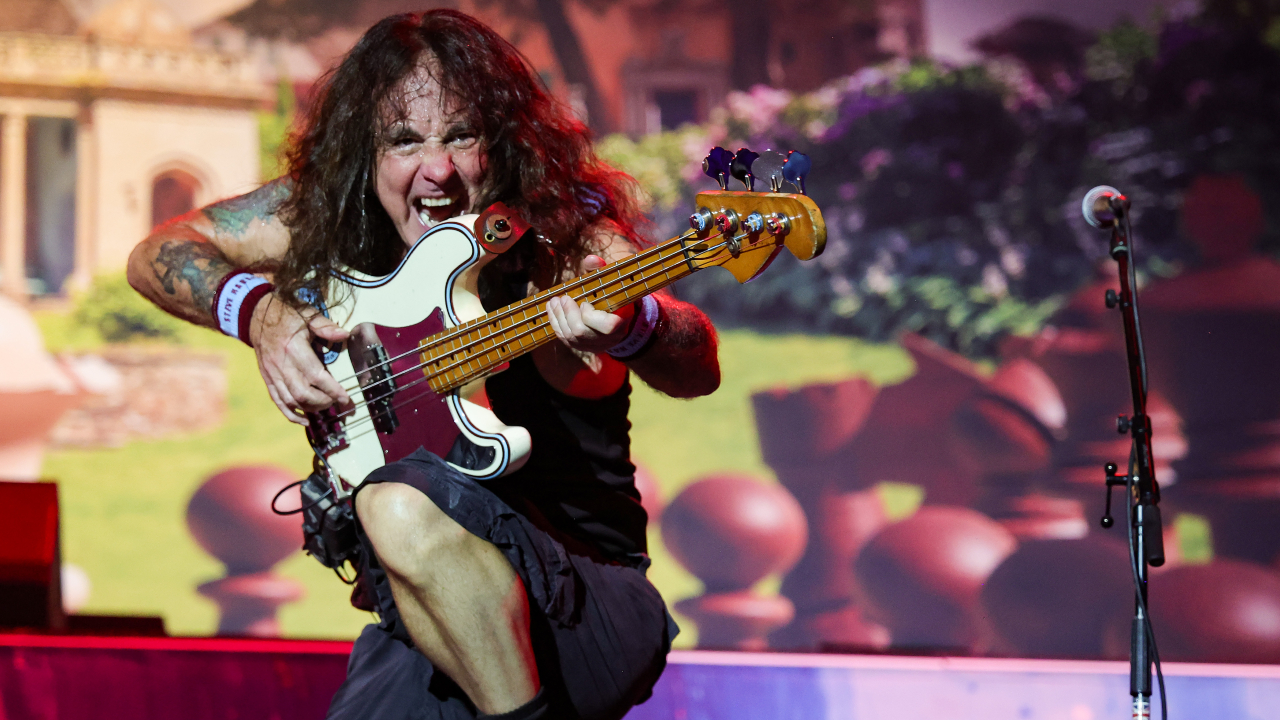"Ultimately, they weren’t Rick Wakeman" - Clem Burke and Glen Matlock on the outsider appeal of the original punk bands
Ahead of their gig with Iggy Pop at the Dog Day Afternoon festival in London, Blondie’s Clem Burke and former Sex Pistol Glen Matlock talk punk, punk and more punk

There’s a special relationship between drummers and bass players. And while Blondie’s Clem Burke and former Sex Pistol (and current Blondie stand-in) Glen Matlock may not actually be husband and wife, they bicker with such unselfconscious, free-flowing ease that they might as well be.
We join the pair of transatlantic punk rock legends in Colchester. They’re in the UK’s oldest recorded town to play with Lust For Life (a Katie Puckrik-fronted band of Iggy Pop alumni). Drinks have been poured, and Glen – full of cold in cap and scarf – is just embarking upon a story concerning late Faces keyboard player Ian McLagan as Clem, suited, booted, bright-eyed and bushy-tailed, every inch the rock star, bursts through the dressing room door.
Glen: Yeah, Mac was great, a lovely bloke, funny…
Clem: I knew Ian too. I actually did two records with him.
Glen: Anyway, back to…
Clem: I’m talking now.
Glen: I was just in the middle of talking and you butted in. I was about to tell a story, but never mind…
Sign up below to get the latest from Classic Rock, plus exclusive special offers, direct to your inbox!
Clem: [Slightly tetchy] Go ahead then, Glen. Don’t let me interrupt you.
Glen: [After a long, heavy sigh] I was very fortunate to do some shows with the Faces, and Mac said: “How’s it going on stage?” I said: “I made a bit of a cock-up in that last one.” He said: “Oh, don’t worry about it, you should have heard what Iwas playing, it was terrible,” and laughed. There was never anything too serious about him. We were doing a Vintage Festival show, and he says: “The thing is, he’s putting me off.” And I looked round and there was Jeff Beck standing on the side of the stage. So I said: “Mac, he might be a great guitarist, but I bet he can’t play the piano like you.” He went: “Alright then” and got on with it.

Glen, when was it that you first became aware of Clem?
Glen: I’d seen pictures of Blondie, and they weren't scabby old punk rockers, they had a bit of style to them, they had that pop thing going on. I think the first time I met Clem was when I did that one-off gig with Sid (Vicious) at the Electric Ballroom. Blondie had turned up en masse and, Clem tells me, Marc Bolan was there. I do remember Phil Lynott being there… When you're in a band your paths kind of cross and you gravitate to people you get on with, so I suppose me being a bass player and him being a drummer there's some kind of affinity there.
And Clem, when did you first become aware of Glen’s work?
Clem: I tried to get Glen in a band with me, back in the seventies, that I was trying to put together with Eric Faulkner [of the Bay City Rollers] and Paul Weller [then of The Jam]. It was kind of a pipe dream. We had that bit of a lay-off with Blondie at the time, and even though we were so successful I was still trying to get something else going, just to keep playing, and that’s been my MO ever since. I’m not exactly sure what happened with that band, but I know we spent a lot of afternoons in The Roebuck on the King’s Road.
While arguments persist about who invented what, there were always distinct differences between the UK and US punk scenes. I spoke with Dave Vanian and Captain Sensible recently, and they were saying how when The Damned first played CBGB in the spring of 1977, the New York bands were utterly appalled by what drunken louts they were.
Glen: The first time I went to New York I was playing with Iggy Pop and we headlined the Palladium on Halloween, with The Cramps supporting us, and I did like a brown ale back then. Iggy Pop felt much the same way as they did about The Damned, and read me the riot act: “The American people will not stand for this kind of behaviour…” You know, Iggy Pop telling me off, can you imagine? It was probably because I was winding him up about getting on a bit.
Clem: I saw The Damned at the Starwood in LA on that tour, actually. They were great. That was at the point when Jake Riviera [Stiff Records co-founder who signed The Damned to the label in ’76] was getting up on stage and haranguing the audience, disparaging the whole thing, Rat set the cymbals on fire and Captain was running around in a tutu.
The Dog Day Afternoon show, on July 1, is possibly one of the most weirdly incestuous bills in a long time, so many Iggy alumni in support, Glen’s in Blondie, Clem was in Chequered Past with ex-Pistol Steve Jones, and Bromley contingent veteran Billy Idol’s singing with Steve and Paul Cook in Generation Sex. It seems everyone involved either knows or has worked with everyone else.
Clem: The promoter’s worried about the guest list that day, and everyone is connected. The Buzzcocks, who are also on the bill, toured with Blondie around Europe. And actually, when Billy Idol first came to New York, I was over here, and when I got home I walked into my apartment and there was Billy and Jimmy Destri, the keyboard player of Blondie, in my loft. Somehow they’d wangled the key from the person who was supposed to be watching my place. My record player was broken, there were big lines of coke on the coffee table, and I was like: “Get the fuck out of here…” But yeah, it’s [bill-topper] Iggy’s show. Iggy was always on the list of potential fatalities. Obviously, him and Keith Richards have both survived, but I sometimes wonder what Johnny Thunders’ place would be if he’d survived.
You both worked with Walter Lure in the LAMF band celebrating his and Johnny Thunders’ Heartbreakers’ legacy.
Glen: That was good to do, a great line-up. I liked Walter a lot. I mean, Thunders was good, but when I first saw the Heartbreakers when they came over to England, I went along to their rehearsals for the Anarchy tour, and he was the Heartbreakers. To me, Walter was the band, not Johnny. Walter was the lynchpin, who held the whole thing together. Thunders always had the dominant profile, but some of Johnny’s best, defining solos were actually played by Walter.
Clem: You could say the same of [Television’s] Tom Verlaine and Richard Lloyd. Even with Blondie it’s misconstrued, because, credit where credit’s due, Frank Infante plays the solo on Rapture, and it’s the first R&B-meets-rock guitar solo, way before Beat It. A lot of times people aren’t sure who’s soloing where on stuff. But Walter was a proper guitar player, and a smart, intelligent guy… It was so sad when Johnny died. He was sick, yeah, but he didn’t take care of himself.
Glen: He tried to once. I was doing this thing with Patti Palladin, supporting Thunders in Paris. They were mates, and I said I’d play with Patti. So I made my way over, and my boat was late, so by the time I got to France there was no train. So I bought a bottle of whiskey. When I made it to Paris at six o’clock in the morning, I’d no whiskey left and didn’t know where I was going.
Anyway, somehow I ended up at [French producer/promoter/Skydog Records founder] Marc Zermati’s house and nodded out. Then later that afternoon I felt somebody tugging at my foot. I opened my eyes and there was what looked like a ghost at the end of the bed. It was Johnny Thunders in a squash outfit with a squash racket. It was like the only time he thought he’d get himself together ever, and he was like: “Glen, you’re worse than Arthur Kane.”
Punk’s longevity never ceases to amaze. But when the word ‘punk’ was being bandied about in the early days of Blondie and the Pistols, I imagine you were both thinking: “Fair enough, just a passing press thing that’ll pass in a couple of months”, rather than: “I’ll still be talking about this shit in forty-seven years’ time to some bloke in Colchester.”
Clem: Well, neither one of us would ever have called ourselves punks prior to the word being used in the vernacular to describe a certain kind of music. I mean, the New York scene was more like beatniks. Debbie and Chris were beatniks, and even Iggy Pop. But when Punk magazine started, people got behind it in New York.
But punk rock in pop was not something I thought of as a new phenomenon. I’m pretty sure The Sonics and Stooges had already been called punk, probably by Lester Bangs. I remember [the MC5’s] Wayne Kramer had just gotten out of prison, and they were saying he was one of the seminal influences on punk rock, but the last thing that he wanted to be called was a ‘punk’, because in prison it means something completely different. So he was like: “What do you mean they’re calling me a punk now?”
So first it was a label for a specific kind of music, but now it’s a catch-all catchphrase used to describe a do-it-yourself lifestyle, a certain ethic. I think there’s a lot of positive aspects to existing under that umbrella of punk in a lot of ways, but I don’t think that we ever went around calling ourselves punks.
Glen: No. As for my band, we weren’t punks, we were the Sex Pistols. To me, punks were the bands who came along after on our coat-tails. But a name sticks. In England it was Sounds’ Jonh Ingham and Melody Maker’s Caroline Coon who came up with the term. We’d never heard it before. It just appeared in the Melody Maker and people adopted it.
One thing that seemed analogous between Blondie and the Sex Pistols was a direct line to the sixties: a combination of Brill Building teen angst and short, sharp, snappy, aggressive music, very reminiscent of mod. The first time I heard the Sex Pistols I heard a mod band.
Clem: Yeah, a bit like The Who. That would have been my reaction as well: stylish, young, aggressive music. I mean, The Who were really the first punk-rock band. But the so-called punk scene couldn’t really be defined by one word. When I first came over here, the UK scene reflected what was happening at CBGB in that all the bands were so different: Dr Feelgood, Eddie & The Hot Rods, The Stranglers, all different.
All they had in common was that they were the opposite of what was happening in the mainstream. Ultimately, they weren’t Rick Wakeman. Add to that a bit of posing and a bit of fun… But who would have thought that we’d still be here now? The next major thing that happened as far as changing the approach to rock’n’ roll was grunge.
Glen: No, there was all the hip-hop thing.
Clem: That’s not rock’n’roll.
Glen: [Tetchy] No, but it was a musical change.
Clem: I know, hip-hop is punk rock but… [clenches jaw]. Don’t get me started…
Dog Day Afternoon takes place at Crystal Palace Park in London on July 1, featuring Iggy Pop, Blondie, Generation Sex and more. Tickets are still available.


Classic Rock’s Reviews Editor for the last 20 years, Ian stapled his first fanzine in 1977. Since misspending his youth by way of ‘research’ his work has also appeared in such publications as Metal Hammer, Prog, NME, Uncut, Kerrang!, VOX, The Face, The Guardian, Total Guitar, Guitarist, Electronic Sound, Record Collector and across the internet. Permanently buried under mountains of recorded media, ears ringing from a lifetime of gigs, he enjoys nothing more than recreationally throttling a guitar and following a baptism of punk fire has played in bands for 45 years, releasing recordings via Esoteric Antenna and Cleopatra Records.
